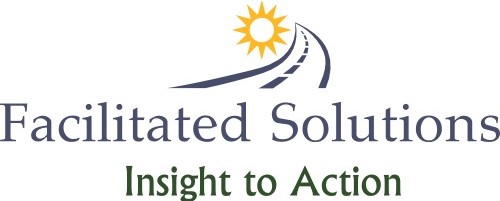
Role of a Facilitator
A Facilitator provides a framework and process to engage participants in resolving challenges and opportunities then defining agreed solutions, actions and outcomes.
Facilitation defines:
- how people engage
- what gets achieved
- who is responsible and accountable
- when it is to be achieved
Key Facilitation Skills
Outlined below are seven facilitation skills with empathy as the foundation facilitation skill.
This list, rearranged in your priority order, can be your evaluation criteria when engaging a Facilitator.
Empathy
– ability to sense and respond to participants emotions, thinking and feelings during group work
Leadership
– ability to develop willing followers in resolving challenges, opportunities, and solutions.
Communication
– ability to share knowledge and create understanding through body language, verbal and written communication and feedback.
Conceptual Thinking
– ability to reflect, understanding and connect the abstract, the seemingly unrelated and even contradictory ideas and views.
Objective Neutrality
– ability to assist progress without expressing a personal view, favouritism, or bias.
Process Design
– ability to develop an agenda demonstrate agility in meeting objectives and participants needs.
Action Planning
– ability to produce a cohesive plan of the actions required to achieve objectives and outcomes
Facilitation Ground Rules
- Establish the context and ground rules:
Ensure participants understand the meeting rules, objectives, agenda, and timelines.
- Encourage participation
Create an environment where participants are motivated to share their ideas, accept diverse views, and respect the contribution of all participants. Draw out quiet and control domineering participants.
- Ensure discussion progresses
Kick discussion off. Clarify outcomes. Stay neutral. Round out discussion. Highlight consensus. Park issue where necessary. Summarise agreements and takeaways.
- Manage Time and Space
Create a focused and participative environment to ensure productive discussions in the time available. Monitor progress and adjust as necessary.
- Record results
Produce a written Action Plan outlining agreement on What, Who, When, Why.
